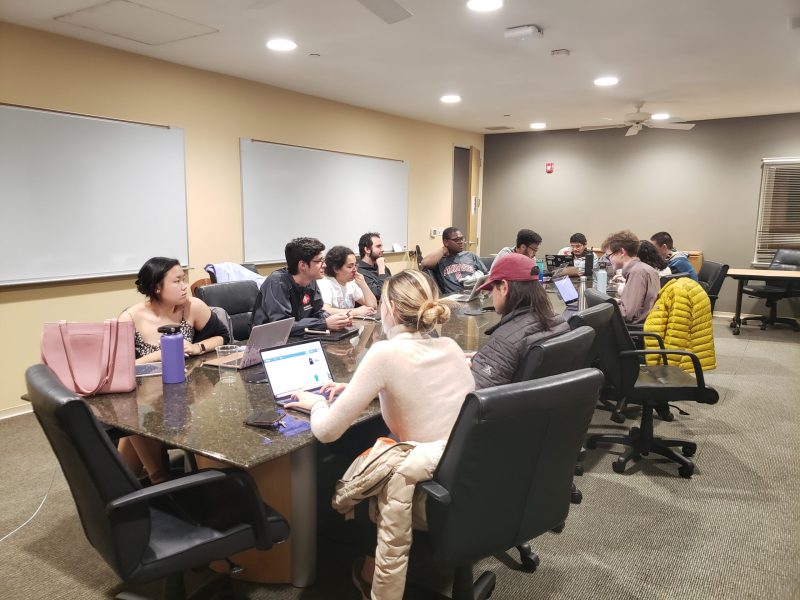The Undergraduate Senate voted to offer the Stanford African Students Association (SASA) and other student groups that failed to fully complete their funding applications the ability to petition for additional funds.
But if these groups fail to get the required number of signatures — over 1,000 — they won’t receive funding from the ASSU at all.
SASA — whose $72,000 request was the largest of the groups that failed to complete their application — submitted an annual grant request on time but failed to attend a funding office hour with a senator, as required by Associated Students of Stanford University (ASSU) regulations for full funding, according to Appropriations Committee Chair Tim Vrakas ’21.
At Sunday’s appropriations committee meeting, the committee decided to put slightly over $36,000 on the ballot for SASA funding, following the precedent set last year after The Daily found itself in a similar position.
According to the ASSU Constitution, student organizations unsatisfied with the Senate’s funding recommendation are eligible to petition that the ASSU Elections Commissioner place their full funding request on the ballot, provided that the group followed the standard process to request funding and received signatures from 15% of the student body during the petition process. If SASA decides to petition but fails to receive adequate signatures, SASA will not get any funding, according to Vrakas.
The debate at Tuesday’s meeting centered on whether or not student groups that had submitted a grant on time but had not attended an office hours session had followed the standard process.
Kojoh Atta ’20 attended the meeting to request that SASA be allowed to petition. Atta, who chaired the 19th Undergraduate Senate, said there was precedent to consider accepting funding petitions from groups with late funding requests, citing the Senate’s 2016 decision to accept petitions from late groups like the Stanford Jazz Consortium.
“It’s sad because I think that [funding] should be up to the students,” Atta said. “If we cannot gather 1,000 signatures, then I’ll be real, we should not get funding, since clearly we didn’t generate enough student interest to deserve funding.”
Christian Giadolor ’21, speaking on behalf of the elections commission, countered that barring a change in the definition of the standard process, the commission would not accept funding petitions from groups that did not attend an office hours session.
“Recognizing that less than standard process was followed in this situation, the election commission statement is that we will not be able to authorize the placement of valid groups that were unable to successfully complete the process, unless the idea of the standards of the standard process change,” Giadolor said.
Vrakas then proposed that the Senate vote to designate all groups that receive an annual grant recommendation from the appropriations committee and follow up with the committee as having followed standard process, a designation that would allow SASA to petition.
“Cutting funds is not a good thing,” Vrakas said. “I would rather that groups that are available to pull petitioning numbers get the money.”
Senator Micheal Brown ’22 said he would vote in favor of the proposal, citing his concerns that Senate rules disproportionately negatively affect groups like SASA.
“I know that the policies we have in place disproportionately affect certain groups, year after year,” Brown said. “And as a member of the ASSU who is at an institution that already does that, I personally don’t want to be a part of the problem.”
While some senators expressed concern about the precedent the resolution would set for funding in future years, the Senate ultimately voted in favor of the resolution.
After the meeting, Atta said he was happy that SASA would be able to petition for more funds, stating petitions were democratic.
“Our student group is providing a lot of public good and teaching about African culture,” Atta said. “What’s the point of having a student government if the student body is not able to put up their concerns to other students?”
Atta further expressed his disappointment that there had been a debate at all about the funding petition.
“I’m really disappointed about all these politics and games that go on in the periphery bodies of the Senate,” Atta said. “I was a member of the Undergraduate Senate, and I don’t know if this is an application for Harvard Law or Congress, but if this is how people are going to act, that’s really disappointing, since we should be the best and brightest of the world.”
